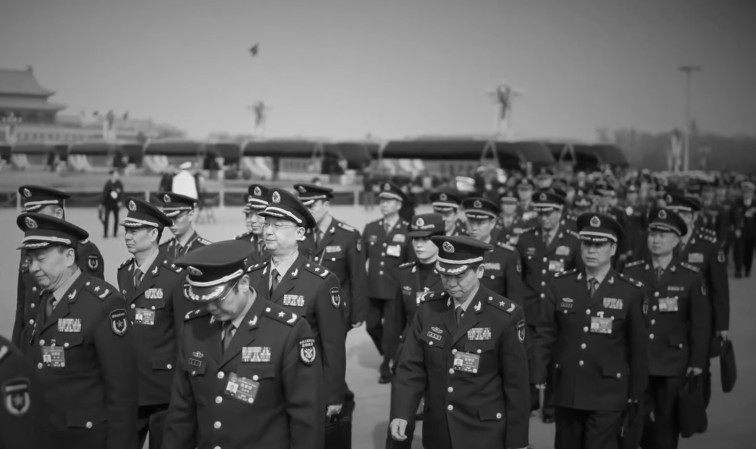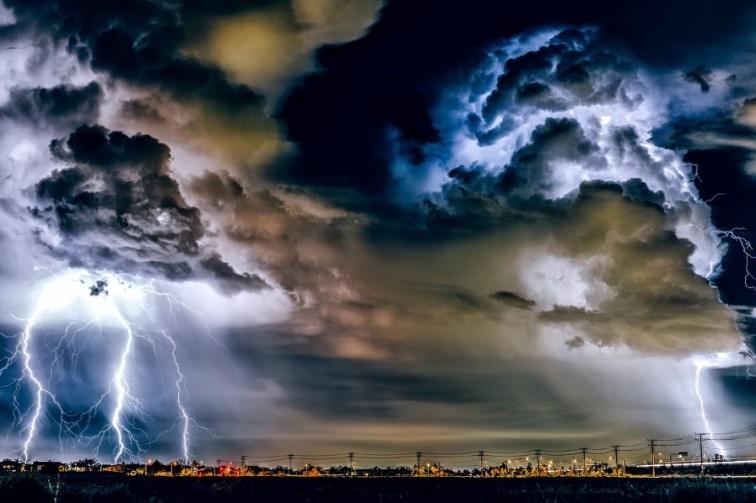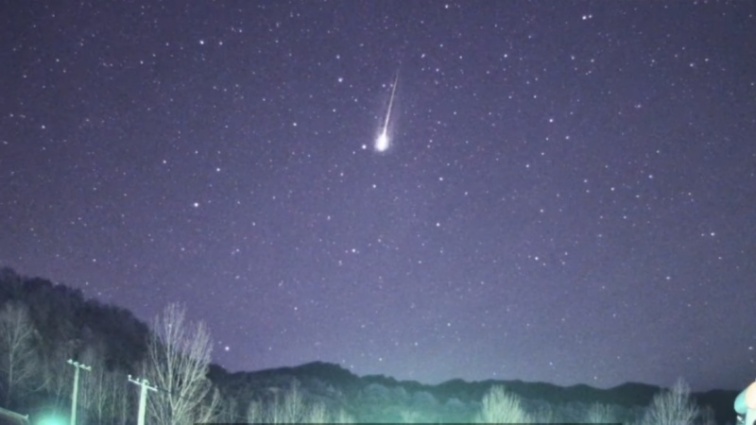Xu Qiliang thrived under four generations of CCP leaders—Deng, Jiang, Hu, and Xi—without decline; He served as a symbol of truce in the compromise between Xi Jinping and the Tuanpai (Communist Youth League faction); The simultaneous political turnarounds of Hu Haifeng and Xu Qiliang marked a turning point in Xi Jinping’s weakening grip on power. (Provided by "Portraits of the Truth")
[People News] Just after former Chinese state media journalist Zhao Lanjian revealed that former Vice Chairman of the Central Military Commission Xu Qiliang had died in the early morning of May 28, the Chinese Communist Party (CCP) officially announced his death at around 7 p.m. on June 2, stating that Xu had died of illness at noon that day in Beijing at the age of 75.
The five-day discrepancy between the whistleblower’s report and the official announcement likely indicates that Xu Qiliang was rushed to the hospital after falling ill on May 28, and was kept alive on a ventilator to preserve vital signs while the CCP arranged how to handle the news. Only once preparations were complete did they officially announce his death.
Perhaps Xu’s death had already been signalled by the heavens. On the night of May 28, a fireball (bright meteor) streaked across the sky and exploded over Maoming, Guangdong. Then, in the early hours of May 31, a similar fireball appeared over Beijing. Typically, when such fireballs fall to earth, they become meteorites, which are often seen as omens of major events or social upheaval, especially signalling the imminent death of a significant figure—an ominous sign indeed.
As such, these recent fireball sightings may be interpreted as celestial omens foretelling the death of Xu Qiliang, a former state-level military leader. Given their appearance over Beijing, it may not be just Xu whose time has come—other major figures may also be nearing the end of their lifespan.
From the official, rather brief obituary, the CCP's posthumous evaluation of Xu is largely positive, calling him an “outstanding Party member,” a “loyal and tested communist fighter and proletarian military strategist,” and an “outstanding military leader.” This wording mirrors that of the obituary for former Vice Chairman of the Central Military Commission Zhang Zhen, who died in 2015.
Xu Qiliang was once an elite air force pilot. In 1994, he became Air Force Chief of Staff; in 1999, he became Deputy Commander of the Shenyang Military Region and Commander of its air force. In 2001, he entered the National Defence University for the third time. In 2004, he became Deputy Chief of the General Staff. By 2007, he was appointed Commander of the Air Force. He was then promoted to CMC member and, in 2012, to Vice Chairman of the Central Military Commission and a member of the Politburo. He retained these posts in 2017. However, at the 20th Party Congress in October 2022, Xu stepped down at age 72, while his same-aged counterpart Zhang Youxia remained.
Reportedly, Xu was a trusted military figure under Hu Jintao, having risen mainly during Hu’s tenure. When Jiang Zemin was forced to relinquish his role as CMC chairman in 2004, Hu succeeded him but remained constrained by two Jiang-era CMC vice chairmen—Xu Caihou and Guo Boxiong—as well as Jiang’s confidant Jia Ting’an, then director of the CMC General Office.
After Jia Ting’an was removed from that role in 2007, Hu began cultivating his own power base in the military. Xu Qiliang, who had already expressed allegiance to Hu while serving as deputy chief of staff, was promoted and rose quickly.
Right before the 18th Party Congress, Xu once again pledged loyalty to Hu Jintao, praising Hu’s speeches as providing “guidance and action plans.” Before handing power to Xi Jinping, Hu elevated Xu to Vice Chairman of the CMC.
During Xi’s first and second terms, he launched a high-profile anti-corruption campaign in the military, targeting Jiang loyalists like Xu Caihou and Guo Boxiong. Xu Qiliang, as a Hu appointee, supported these efforts and thus became a key figure in helping Xi weaken the Jiang faction.
However, after the 19th Party Congress, Xi began shifting leftward, focusing on tightening personal control and seeking a third term at the 20th Party Congress. This sparked dissatisfaction among former allies in the Party and the military.
According to Nikkei Asia, during the Beidaihe Conference in August 2022, Xi was criticised by Jiang faction figure Zeng Qinghong, former military Vice Chairman Chi Haotian, and “princeling” Zhang Dejiang. Meanwhile, then-Premier Li Keqiang, who advocated economic recovery, gained support.
Amid this internal conflict, Xu Qiliang also began distancing himself from Xi. At a military reform seminar in late September 2022—just weeks before the 20th Congress—Xu and Zhang Youxia conspicuously avoided praising Xi, mentioning neither “Xi’s military thinking” nor the phrase “two establishments” (reinforcing Xi’s status), nor even expressing support for the Congress itself.
On October 7, the official PLA and Defence Ministry websites published articles denouncing “rule by man” in military affairs, implicitly criticizing Xi’s top-down control over the military. On October 9, as the 7th Plenary Session of the 19th Central Committee opened, PLA Daily published an article titled Be Fully Prepared for the Unexpected, quoting Mao and Deng but notably omitting Xi.
At the opening of the 20th Party Congress on October 16, military group discussions were reported without mentioning the CMC vice chairmen’s positions. On that evening’s CCTV broadcast, two vice chairmen expressed support for Xi—one endorsed “Xi’s military thought,” another echoed the “two establishments.” But the next day, PLA Daily mysteriously edited Xu’s remarks to include phrases like the “four consciousnesses” and “two safeguards” (standard Xi loyalty markers).
At the 20th Congress’s closing ceremony, Xi had Hu Jintao forcibly escorted out of the venue—Xu Qiliang witnessed it all. His private displeasure likely mirrored Hu’s; at the very least, he may have grown deeply concerned about his own fate.
At the Congress, Xi retained power and appointed loyalist He Weidong as the new CMC Vice Chairman. But unrest in the military persisted. PLA Daily kept emphasising that “implementing the chairman's responsibility system is a major and serious political task,” launching extensive political indoctrination efforts focused on loyalty. Xi also carried out another military purge, detaining multiple top generals, including from the Rocket Force, while Defence Minister Li Shangfu mysteriously disappeared.
Still, Xi remained uneasy, worried about predictions of a potential military coup. Naturally, he also did not fully trust Xu Qiliang, given Xu’s ties to Hu and his lingering influence.
This explains why, in January last year, the author learned from a military contact that Xi was preparing to investigate Xu. In June, Xi and top generals visited Yan’an to hold a CMC political work conference, signalling a new round of purges. But man proposes and heaven disposes—after Xi reportedly suffered a stroke during the July 3rd Plenum, his grip on party and military power began to weaken. Xu likely breathed a little easier.
Over the past 10 months of CCP infighting, it’s unclear whether Xu supported Zhang Youxia. But based on his close ties to Hu and military influence, it’s plausible that Xu’s allies in the military could have supported Zhang in efforts to “de-Xi” the army.
As for the claim that Xu “died of fright,” the author remains sceptical. If Xi has truly lost military control, and figures like Wen Jiabao and Zhang Youxia now wield influence, Xu would have no reason for panic—unless he had done something serious, like being involved in major Air Force corruption scandals.
Regardless, Xu’s death is now a closed case in the CCP’s eyes. Whatever wrongs he may have committed, they will no longer be pursued. After all, which top CCP official is ever truly clean?
What the author finds most intriguing is that Xu Qiliang’s death, first leaked overseas, was confirmed within days. Meanwhile, no word has come from the regime about current CMC Vice Chairman He Weidong, who was reportedly taken away after the “Two Sessions” in March and committed suicide in early May. Why the silence?
The author speculates that this delay may be tied to the timing of a broader high-level shakeup in Zhongnanhai. If He’s investigation or death were confirmed now, it would prompt more probing questions about Xi’s fate. Until the CCP has settled on a strategy for managing potential unrest, it may continue withholding the truth. But again, man cannot outwit fate. One or several sudden incidents could trigger a domino effect. As of now, heaven has already sent its signs—what happens next depends greatly on how the Party’s controllers choose to respond.










News magazine bootstrap themes!
I like this themes, fast loading and look profesional
Thank you Carlos!
You're welcome!
Please support me with give positive rating!
Yes Sure!